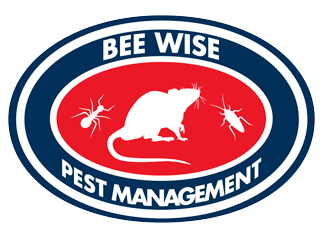Why Mice and Rats Become a Bigger Problem Indoors
Winter Rodent Activity: Why Mice and Rats Become a Bigger Problem Indoors When temperatures drop, mice and rats don’t disappear — they relocate. Winter is one of the most active seasons for rodent infestations inside homes and commercial buildings, especially in urban areas like Baltimore. What often starts as a faint noise at night or a small droppings trail can quickly turn into a serious health and property risk if not addressed immediately. Understanding why rodents become more aggressive indoors during winter — and what that means for your property — is critical to preventing costly damage and contamination. Why Rodents Move Indoors in Winter Rodents are highly adaptable, but they cannot survive prolonged cold without shelter. As outdoor food sources decline and temperatures drop, mice and rats actively seek: Warm, insulated spaces Reliable food and water sources Hidden nesting areas protected from predators Homes, restaurants, offices, warehouses, and apartment buildings provide ideal winter conditions. Once inside, rodents rarely leave on their own. According to data from public health agencies and pest management associations, rodent activity reports increase significantly during colder months as infestations shift from exterior environments to interior structures. The Real Risks of Winter Rodent Infestations 1. Health and Sanitation Hazards Rodents contaminate surfaces through urine, droppings, saliva, and nesting materials. These contaminants can spread bacteria and pathogens linked to serious illnesses. In commercial settings, this poses a major risk to employees, customers, and health inspections. Even a small infestation can compromise kitchens, storage areas, HVAC systems, and food preparation spaces. 2. Rapid Population Growth Indoors A common misconception is that rodents slow down in winter. In reality, indoor conditions allow them to reproduce year-round. A single pair of mice can multiply quickly once established inside walls, ceilings, or utility voids. By the time droppings are visible, the infestation is usually well underway. 3. Structural and Electrical Damage Rodents constantly gnaw to keep their teeth from overgrowing. Inside buildings, this behavior leads to: Damaged insulation Chewed electrical wiring Compromised drywall and wood framing Electrical damage caused by rodents is a known fire risk, especially during winter when heating systems are in constant use. 4. Increased Activity at Night Winter rodent infestations are often first noticed through scratching, scurrying, or gnawing sounds at night. These noises typically indicate rodents nesting inside walls, attics, or crawl spaces — areas that DIY traps cannot effectively address. Why Winter Makes Rodent Problems Harder to Control Cold weather concentrates rodent activity indoors, making infestations denser and more destructive. In addition: Entry points become more valuable to rodents and are reused repeatedly Indoor nests are harder to locate without professional inspection Store-bought traps address symptoms, not the source Without sealing entry points and eliminating nesting areas, rodents will continue entering even after initial removal attempts. The Importance of Professional Rodent Control Effective winter rodent control requires more than traps. It involves a comprehensive approach that includes: Thorough Inspection Professionals identify active nesting zones, travel paths, and hidden access points that rodents use to enter the structure. Targeted Removal Safe and effective removal methods are used to eliminate rodents already inside the property. Entry Point Sealing and Exclusion Small gaps, foundation cracks, utility penetrations, and roofline openings are sealed to prevent reinfestation. Mice can enter through openings as small as a dime. Ongoing Monitoring Winter infestations often require follow-up to ensure long-term protection, especially in commercial and multi-unit properties. Why Acting Early Matters Delaying rodent control during winter allows infestations to grow undetected. By spring, property owners often face: Extensive contamination cleanup Structural repairs Failed health inspections Increased treatment costs Early intervention significantly reduces damage and prevents rodents from establishing permanent indoor colonies. Professional Rodent Control in Baltimore Bee Wise Pest Management provides professional rodent control services for residential and commercial properties throughout the Baltimore area. Services include detailed inspections, effective rodent removal, and professional sealing of entry points to stop infestations at the source. Winter is not the time to wait and see. Rodents are already active indoors, and the longer they remain, the greater the risk to health, safety, and property. Scheduling professional rodent control now helps protect your space before the problem escalates.
Read More